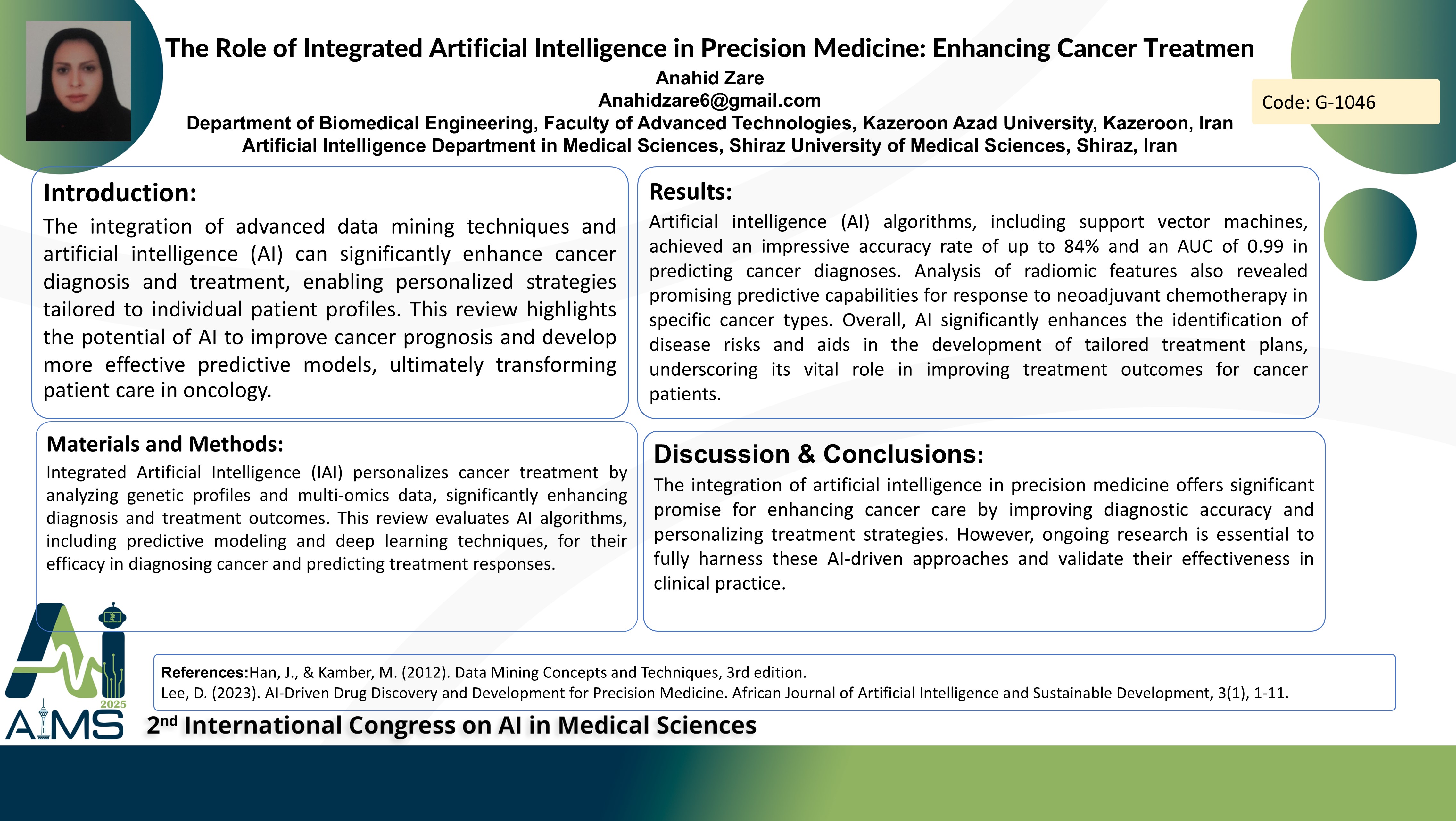نقش هوش مصنوعی یکپارچه در پزشکی شخصیسازی شده: ارتقاء درمان سرطان
کد: G-1046
نویسندگان: Anahid Zare * ℗
زمان بندی: زمان بندی نشده!
برچسب: پردازش سیگنال های پزشکی
دانلود: دانلود پوستر
خلاصه مقاله:
خلاصه مقاله
Background and Aims: Personalized medicine is revolutionizing healthcare by customizing treatment plans based on individual patients’ unique genetic and environmental factors. This article examines the applications of Integrated Artificial Intelligence (IAI) in personalized medicine, with a particular focus on the prediction, diagnosis, and treatment of cancer. The primary objective of this research is to evaluate and analyze the methods of artificial intelligence in improving treatment outcomes for cancer patients. Method: In this study, genomic and radiomic data from various sources were collected and analyzed. Published articles in reputable databases were reviewed. Various artificial intelligence algorithms, including deep neural networks and support vector machines (SVM), were assessed for their ability to predict treatment responses and diagnose cancer types. Results: The results indicate that artificial intelligence algorithms possess a high capability for predicting and diagnosing cancer. For instance, the accuracy of SVM models in some studies reached 84% and an AUC of 0.99. Additionally, the use of radiomic features in predicting responses to neoadjuvant chemotherapy (NACT) in specific cancers yielded positive results. Overall, artificial intelligence significantly enhances disease risk identification and the development of personalized treatment plans. Conclusion: The application of artificial intelligence in personalized medicine has the potential to improve clinical decision-making and increase the accuracy of cancer treatments. This approach can serve as an effective tool in managing cancer patients. However, further research is needed to fully assess the impacts of these algorithms and their effectiveness.
کلمات کلیدی
Precision Medicine, Artificial Intelligence (AI), Biomarker
